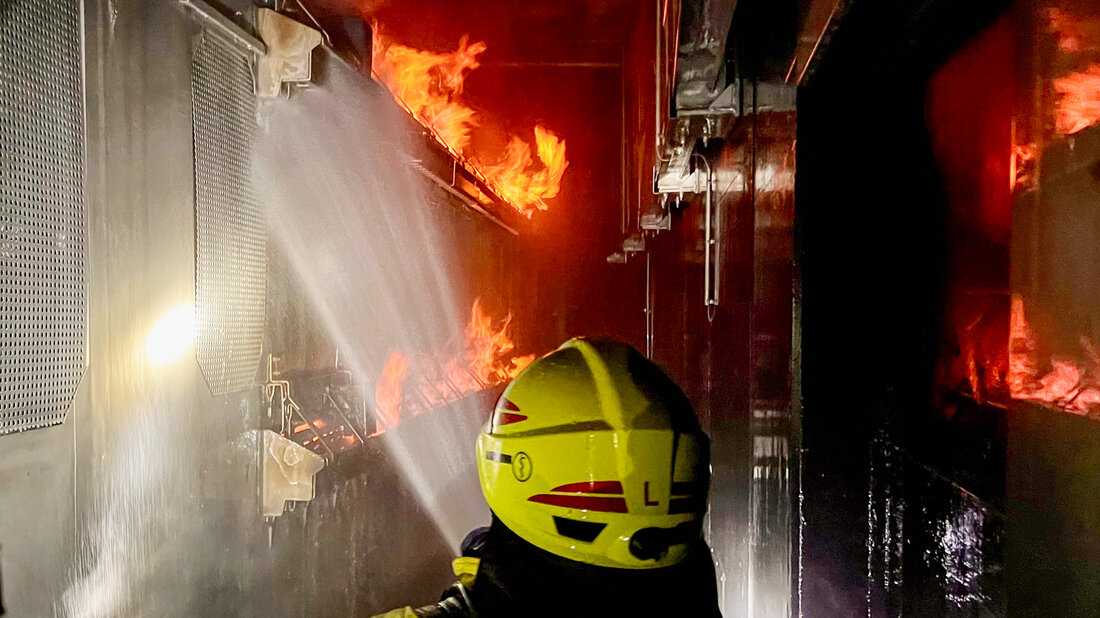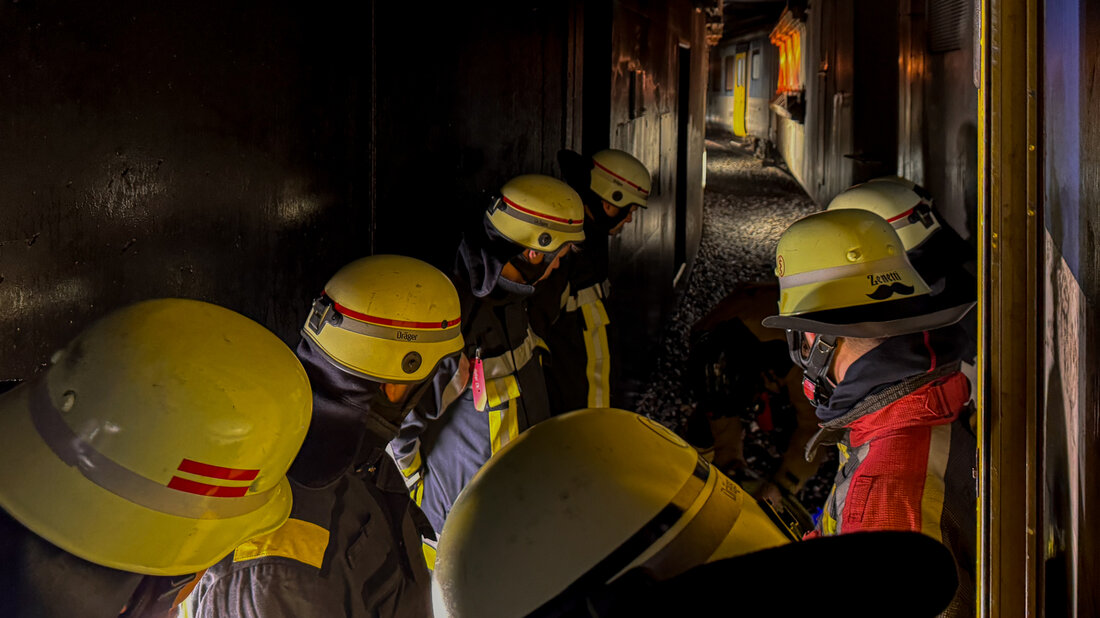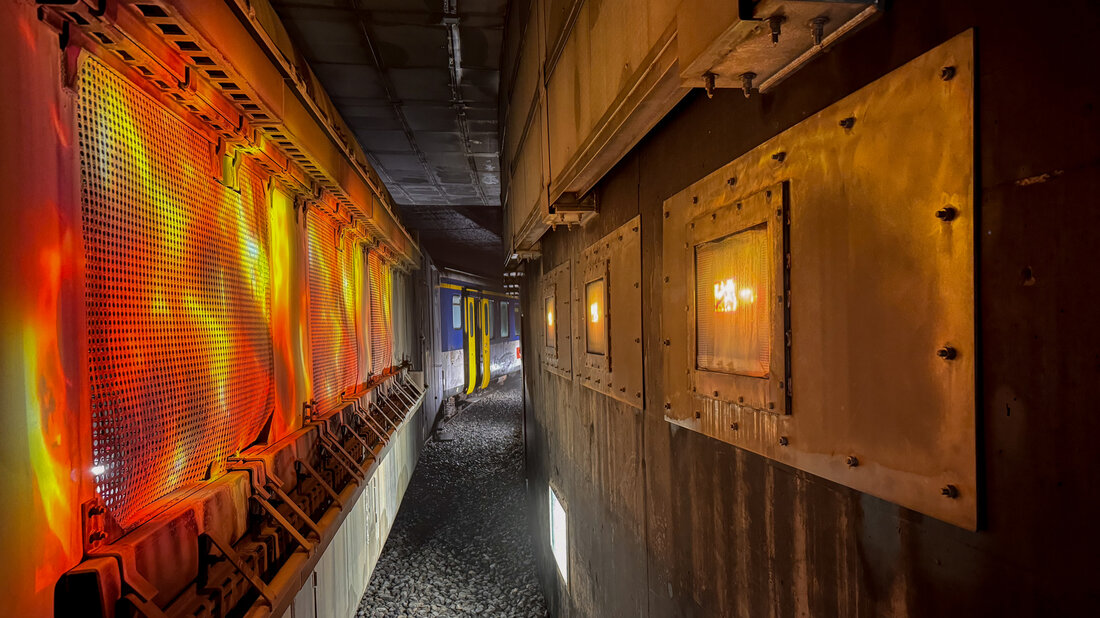We are occasionally asked why we use cold fire projections in our railway training tunnel in Balsthal in addition to gas-operated fire mockups. This article shows how we use flame projections to protect people, the environment and equipment and why this has also proven to be advantageous from a didactic point of view.
Hot fire mockups are ideal, but also stressful
Thanks to turnout gear and respiratory protective equipment, firefighters can get very close to fires without suffering burns. However, this exposes them to a high heat load, leading to physical over-exertion in extreme cases. In tunnel training, our course participants should also learn how to deal with the heat load correctly on an individual basis. Fire mockups are ideal for this because they generate real thermal operating conditions.

It doesn't always have to be hot
The perception of heat is not relevant for all training activities in the training tunnel. An example: The heat load is relatively low when setting up the attack lines, which is why this task does not have to be practised under heat. However, the cold fire projection serves as a visually perceptible threshold up to which the attack lines should be laid.

«Cinema of flames» in the railway training tunnel
Our cold fire projections in the railway training tunnel consist of three projectors recessed into the tunnel wall. The projectors project video recordings of real fires onto the outer wall of a passenger car. This «cinema of flames» is so realistic that it is easy to tell: There is a fire across the width of three windows inside the car; the flames are already leaping outwards.

Advantages for people, environment, equipment and didactics
The advantages of the cold fire projection are apparent: The environment is protected because no natural gas has to be burnt. Operation of the cold fire projection is almost wear-free for the equipment. Participants are not unnecessarily burdened with heat. It also has advantages for training didactics: The trainees can focus entirely on their task and the sensory impressions required for it, such as laying hose lines quickly and safely without being exposed to heat. There is also no unnecessary time pressure because there are no time limits for using the projections as there are when using the gas-operated fire mockups. Meaning that the hose management can be trained as intensively as required for successful training.






